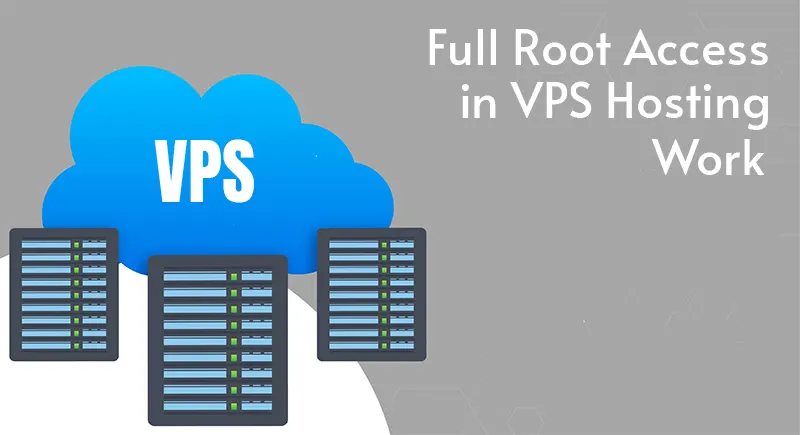Looking for hosting options, note that some service providers grant root access and others do not. What then is complete root access, and why would one need it?
Essentially, having complete root access allows you to modify anything on or off your server. For your virtual private server, the phrase refers to complete administrative-level rights.
About anything may be installed, removed, or configured. Then, should anything go wrong, you may access the server to identify the source of the problem and, ideally, resolve it.
Full root access, to put it briefly, is the ability to modify the server any way one chooses. We describe complete root access in VPS hosting and its advantages here.
How to go to the root?
Its accessibility is determined by the kind of server you have.
An IP address of the server, root password, SSH port, and SSH connection are all that are needed for a Linux-based server. Upon server setup, your VPS hosting providers will offer this information.
There are other Windows-based servers to which root access requires a password, IP address, and remote desktop connection. This log-in information will be sent to you in the Welcome Email following server setup. Furthermore available is the Microsoft Remote Desktop Connection manager.
1. In some kinds of VPS hosting, root access
Unmanaged, semi-managed, and fully managed are the three categories of VPS hosting.
1.1 Unmanaged VPS:
End users are responsible for all server administration, virtual server management, and security in this setup. Before choosing an unmanaged virtual private server, you should be somewhat conversant with Linux server management. To guarantee security and eliminate vulnerabilities, the end user will also need to maintain all services and website scripts current with each new version. An unmanaged virtual private server gives you root access.
1.2 Fully managed VPS:
The hosting company offers full assistance with practically anything. Things like software installation, VPS-related issue diagnosis, virtual server security maintenance, and so forth will be covered. The end user will be in charge of installing, setting up, and maintaining any bespoke program or script, though. Fully managed virtual private servers are perfect for businesses that would rather concentrate on their core competencies than handle root access.
For those who need assistance managing their virtual server, the ideal choice is a semi-managed VPS. Moreover, businesses seeking a less expensive option than a fully managed VPS server would do well to choose a semi-managed VPS. Though root access is included with semi-managed servers, the provider will take care of any hardware, operating system, or basic configuration problems.
The advantages of having complete root access while operating a virtual private server
Before shared, virtual private servers, or cloud hosting services were developed, website owners were accustomed to having dedicated servers and resources for their websites. This included root access in web servers running Linux or administrative rights in Windows.
But as technology has advanced, so have alternative hosting options like WordPress, VPS, and cloud hosting. Regretfully, administrative or root access are not included with every hosting. We discuss here the advantages of having complete root access on a virtual private server:
2. Customization of the Hosting Environment
As was already said, you can access the VPS Server with administrative or root access. For this reason, you are free to select the operating system and install or delete programs and software. You may therefore maximise the potential of your VPS servers. Moreover, root access enables you to design very specialized hosting packages to draw in your intended market. On your VPS server, you may also install and delete bespoke software or apps with administrative or root access.
3. Entire Management of Site Security
Full root access means that the end user is responsible for software and application security throughout installation. You may also use any third-party security software to draft a security plan. Furthermore, you may modify any settings to provide the strongest protection for your files and data.
4. Independent Server Administration
Having administrative or root access when you choose Managed VPS Server Hosting plans frees you from all web host dependence. Sometimes the host makes sure he runs the server according to your specifications. Nonetheless, if you need to modify any settings and have the necessary technical know-how (or team), then root access is necessary. You won’t run across any problems with server permissions in such a situation. Since you shorten the procedure by making certain adjustments yourself, this can save time and boost productivity.
Ending
As was already indicated, having complete root access with VPS hosting has several benefits. Full root access does, however, with a startling degree of responsibility. Hardware- and software-wise, a server is a complex piece of equipment. All of the thousands of virtual components can collapse if one of them is misconfigured.
Businesses will need to exercise caution in giving log-in information to only reliable people who are conversant with virtual machines and servers. As such, make sure you effectively use the root access to get the most out of your VPS server.









